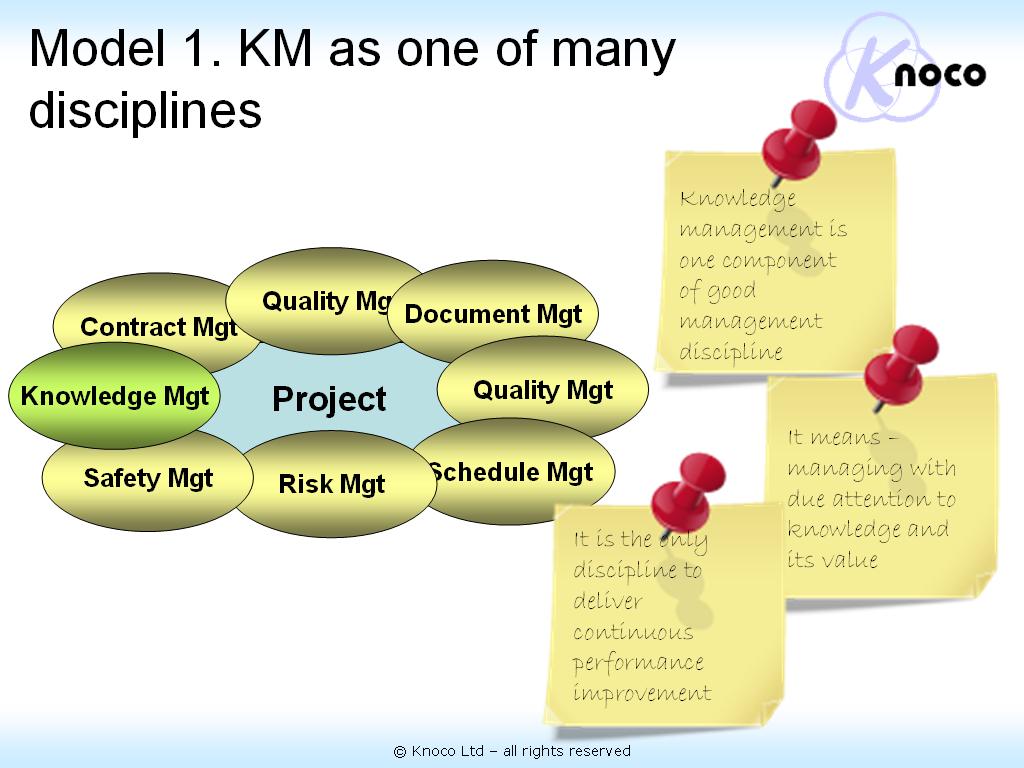Is KM a Science? Is KM a Philosophy? No - it's a Management Discipline. And here is why that is a useful viewpoint.

I have met many people over the years who treat Knowledge Management as something entirely unique - a philosophy, almost, or a "world-view". For these people, there is nothing quite like KM.
Our view in Knoco is that KM is not unique, but is rather the latest in a range of management disciplines.
Knowledge Management represents a way of managing work, paying due attention to the value and effect of an intangible (namely, knowledge). And it's not the only management discipline which deals with intangibles. Risk management, quality management, customer relationship management, brand management, reputation management, talent management, safety management - all deal with intangibles.
This view - of KM as one discipline among many - is derived from recognising knowledge as one organizational asset among many. For centuries, organisations have managed their visible assets, such as money, people, property and equipment. More recently organisations have been addressing the intangible assets, such as their reputation, their IP, their customer base, the diversity and talent of their staff, their ability to work safely and sustainably, and now their knowledge.
This view is entirely compatible with the recent introduction of ISO 30401:2018, the ISO Management Systems standard for Knowledge Management, which treats KM exactly the same way that ISO treats quality management or asset management, and which defines KM as "management with regard to knowledge".
The value of treating KM as a management discipline
Maybe that's a pragmatists approach rather than a theorists or idealists approach, but if you are looking to embed KM in your organisation, you will find that this is an approach that works.
The second great value of treating KM as "one among equals" is that it gives you an analogy for the practical issues of implementation and sustaining KM. You can look at the closest analogue discipline that is already embedded in your organisation, and ask
- "How did we implement this?
- What lessons can we derive about implementing such a discipline?
- How are we sustaining this?
- What lessons are there for sustaining KM?"
Probably the closest analogue disciplines for KM are safety management and risk management. Both of these disciplines are not about the management of tangibles - neither safety nor risk are things you can pick up, weigh and put in your pocket - but more about how you manage your organisation so that safety and risk are given priority, and so that people's safety behaviours and risk behaviours change.
So if your organisation has, in the past, successfully introduced risk management and safety management, then you should be greatly heartened as a knowledge manager, as KM can then follow a proven implementation path.




No comments:
Post a Comment